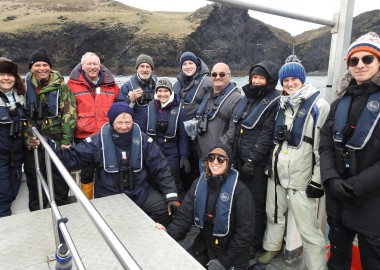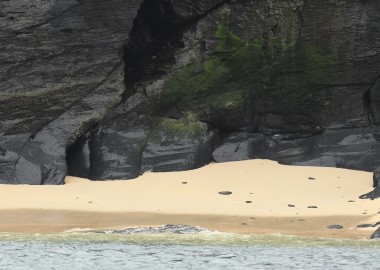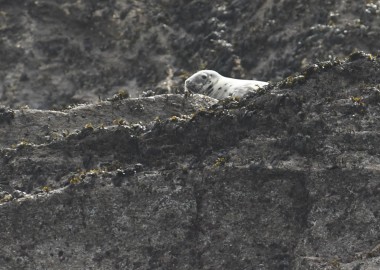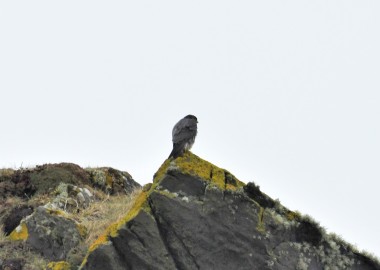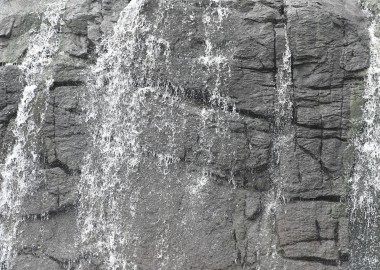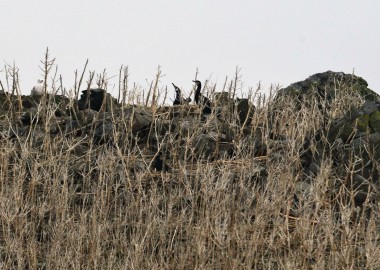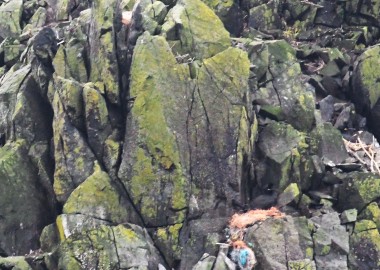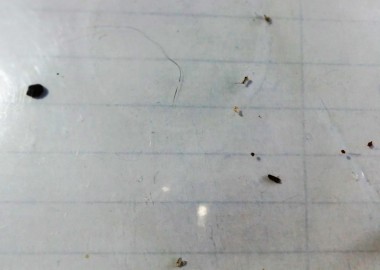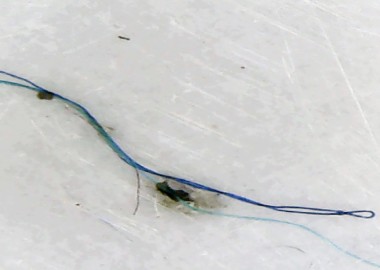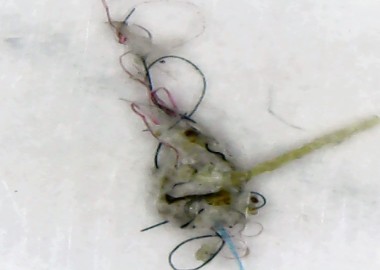Beauty and plastic beasts
Despite challenging conditions, Cornwall Seal Group Research Trust (CSGRT) volunteers have been out on two day long boat surveys covering 80+ miles of Cornwall’s north coast.
Our marine life and human impact surveys are gathering vital evidence of what is happening along our shores out of everyday sight.
Our volunteers are amazing and an undoubted force for good, taking positive action to protect our beautiful coastline.
Our normally well represented seals were well down on their usual numbers and all the guillemot nesting ledges on the eastern transect were empty.
But we did see prolific waterfalls swollen from the frequent and heavy rain we have experienced this year and we recorded impressive cormorant nests on offshore island summits.
On a less positive note, it was heartbreaking to witness proud shags sitting on top of nests of lost fishing gear that pose a serious risk of entanglement to their chicks.
We have also begun to trawl for microplastics floating on the sea surface. These are tiny plastic fragments less than 2mm across.
When viewed through a microscope, these small benign looking bits of plastic become more shocking with long coloured fibres that tangle into masses that trap organisms at the base of the food web.
Plastic has been shown to travel up the food chain and into us from the food we eat. When we swim in the sea and swallow seawater, we can be ingesting plastic too.
On these surveys, we survey all marine life, bird species and breeding bird numbers, human activity levels, lost fishing gear and marine microplastics.
More recently we have teamed up with the University of Exeter to take water samples that will be analysed for environmental DNA.
CSGRT work in partnership with Polzeath Marine Conservation Group and Newquay Marine Group to organise and fund these surveys currently paid for by Patagonia and Sea-Changers.
For a comprehensive summary of the issue of plastics in the marine environment click here.
Thank you to everyone who has helped make these long term surveys possible. If you would like to donate towards a survey or even take part in one, please email [email protected]

